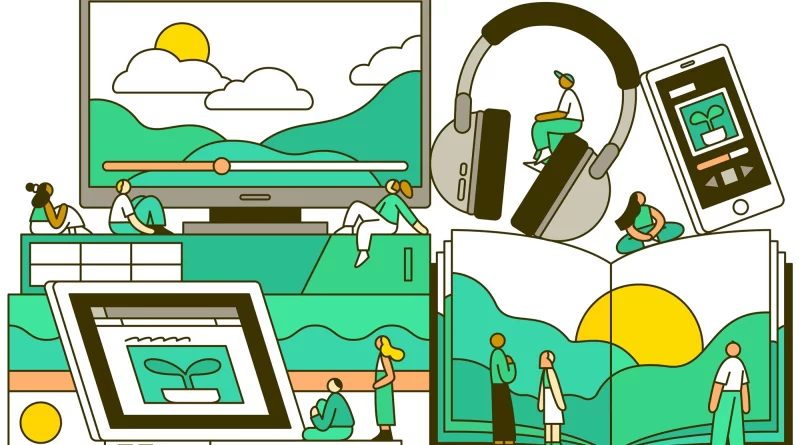Unconventional Learning: A Modern Educational Shift
In the ever-evolving landscape of education, the traditional classroom setting is no longer the sole bastion of knowledge. As we navigate the vast sea of information in the 21st century, students and educators alike are discovering the enriching potential of unconventional learning sources. This article delves into the realm of non-traditional educational materials — from podcasts and documentaries to unconventional classes — to explore how they are reshaping the learning experience.
Podcasts: Beyond the Textbook
Gone are the days when textbooks were the primary reservoirs of knowledge. In today’s dynamic learning environment, students are harnessing the power of podcasts to explore diverse topics in engaging and accessible ways. Podcasts offer an auditory journey into subjects that might seem abstract or challenging when confined to the pages of a traditional textbook.
Imagine a history class where students embark on an audio adventure through pivotal moments, hearing firsthand accounts and expert insights. Podcasts bridge the gap between theoretical knowledge and real-world application, making learning a multi-sensory experience.
Documentaries: Bringing Learning to Life
Visual learners, rejoice! Documentaries have emerged as powerful tools for delivering information in a captivating and memorable format. These cinematic creations transcend the boundaries of conventional teaching methods, allowing students to witness historical events, scientific breakthroughs, and cultural phenomena unfold before their eyes.
From exploring the depths of the ocean to understanding the intricacies of global politics, documentaries provide a visual symphony of knowledge. They ignite curiosity, foster critical thinking, and bring subjects to life, making learning an immersive and enjoyable process.
Breaking the Mold: Where Creativity Meets Curriculum
Innovative educators are redefining the traditional classroom setting by introducing unconventional classes that break free from the mold. Whether it’s a class on sustainable living, digital storytelling, or even Dungeons & Dragons as an educational tool, these courses broaden the spectrum of learning experiences.
Unconventional classes spark creativity, encouraging students to think beyond the confines of traditional subjects. They provide a platform for hands-on learning, collaborative problem-solving, and the development of practical skills that extend beyond the academic realm.
Benefits of Unconventional Learning
The shift towards unconventional learning is not merely a trend; it represents a pedagogical revolution. These alternative sources of education offer numerous benefits, including increased engagement, enhanced critical thinking skills, and a more profound understanding of complex concepts.
By incorporating podcasts, documentaries, and unconventional classes into the educational landscape, schools empower students to become active learners. They cultivate a love for learning that extends beyond the classroom, fostering a mindset of curiosity and exploration that is essential for success in the 21st-century world.
Conclusion: Navigating a New Educational Era
As we stand on the cusp of an educational renaissance, it is evident that unconventional learning sources are steering the course toward a more dynamic and inclusive future. By embracing podcasts, documentaries, and unconventional classes, educators and students alike can unlock a world of knowledge that transcends the limitations of traditional textbooks. The journey of learning becomes not only a pursuit of information but a holistic and transformative experience that prepares students for the challenges and opportunities of the modern era.

